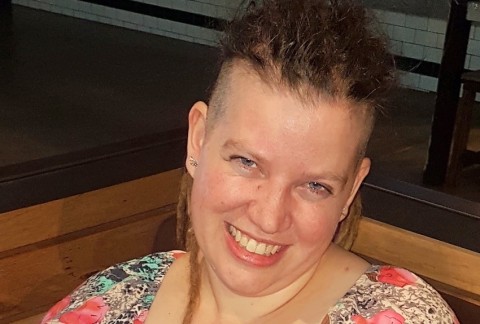Every year on March 30, World Bipolar Day is observed to raise awareness about Bipolar Disorder and to eliminate stigma surrounding this complex mental health condition. It's a day to educate, support, and advocate for those living with Bipolar Disorder, as well as their loved ones. This blog post delves into a general overview of what Bipolar Disorder is, how to differentiate between its subtypes, signs to watch for, common misconceptions, treatment options, and resources for support and management.
The SANE Blog
If you've seen people diagnosed with bipolar disorder on the news, or in a movie, you might have an idea of what bipolar disorder involves. But did you know that there are different types of bipolar disorder, and it affects people in different ways?
This World Bipolar Day (March 30 2023), we’re focusing on the unique experiences of three people living with bipolar disorder – Matt, Holly and Alice. We talked to them about what they think is important for people to know about bipolar disorder.
Obsessive-compulsive disorder, or OCD, is a term bandied around a lot these days – ‘that’s so OCD’ or ‘when it comes to cleanliness I’m so OCD’ - but do we really know what it means?
Psychiatric medications, also known as psychotropic medication, play an important role in the treatment and management of mental illness.
Yet despite being commonplace, there are many myths surrounding the use and effectiveness of psychiatric medication.
Anxiety is the most common mental health condition in Australia, on average one in four people will experience the illness at some stage in their life.
Yet a common myth is that anxiety disorders are rare.
Despite the prevalence there are many myths surrounding anxiety. These myths can create stigma and prevent help seeking. So it's important to know the facts.
Imagine watching a film about the mental illness you’ve just been diagnosed with. Now imagine that film paints a picture of violence and danger. It suggests people with your condition are a terrifying threat to society.
Hollywood loves to use extreme depictions of mental illness to make movies, and they’re not always concerned with accuracy or sensitivity.
The latest example, Split, portrays a highly stigmatising, inaccurate version of dissociative identity disorder (DID).
So it’s time to counter the myths with some facts.
Borderline personality disorder (BPD) is a commonly misunderstood condition that carries a lot of stigma. Misconceptions about BPD can stop people seeking treatment and influence the way people with BPD are treated by others.
So what are these common misconceptions? And what facts can we use to correct them?
It’s #Supermoon night! Grab your binoculars and telescopes and extra-dark sunglasses!
The Moon has had a lot of pretty outlandish myths around it. It’s made of cheese. It’s full of bat people. It’s got a bloke in it.
And, far more ridiculously, it affects your mental health.
To reduce the rate of eating disorders in Australia we need to raise awareness of the symptoms, causes and impact. And to do this effectively we need to increase public understanding that these disorders are real and can affect anyone.
But there are lots of common myths that get in the way. These myths make it harder to raise awareness and can even result in judgmental attitudes and stigma. So to help demystify eating disorders, increase understanding and to stop the stigma here are five myths busted!









